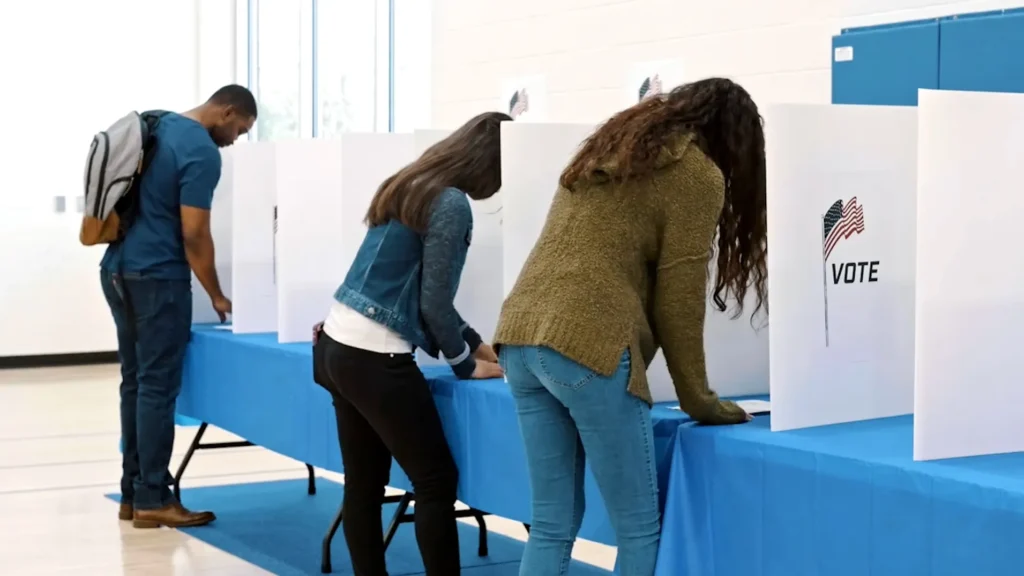Crista Eggers is racing against a looming deadline. By July 3, she needs to gather at least 87,000 signatures on each of two petitions to qualify for the November ballot. These initiatives aim to legalize medical marijuana in Nebraska.
For Eggers, this mission is deeply personal. Her 9-year-old son, Colton, suffers from epilepsy and severe seizures, conditions for which medicinal cannabis could offer relief. Eggers, who lives in Omaha, serves as the campaign manager for Nebraskans for Medical Marijuana. She highlights the grassroots nature of their effort, noting that most of the signature collectors are Nebraskans who know someone in need of medical cannabis.
“If we succeed, Nebraska could join Florida and South Dakota in letting voters decide on cannabis legalization this fall,” Eggers explained. In contrast to Nebraska’s push for medical cannabis, voters in Florida and South Dakota, where medical marijuana is already legal, will decide whether to legalize recreational use.
Currently, 38 states and Washington, D.C. have legalized medical cannabis, and 24 states, plus D.C., allow recreational use, according to the National Conference of State Legislatures. Despite federal prohibition, a significant portion of Americans now live in areas where marijuana is legal in some form: 74% for either medical or recreational use, and 54% specifically for recreational use, as reported by the Pew Research Center.
While many left-leaning states have legalized cannabis through legislative processes, conservative states often see more resistance from their legislators. Beau Kilmer, co-director of the RAND Drug Policy Research Center, notes that in some conservative states, lawmakers are reluctant to address cannabis legislation, prompting the use of ballot initiatives instead.
In Kansas, for example, legislative efforts to legalize medical marijuana have repeatedly failed since 2021. Conservative legislators have blocked such measures, with state Senator Mike Thompson even suggesting that marijuana could lead to increased suicides and misery, as reported by the Kansas City Star. Kansas, one of the 24 states without citizen-initiated ballot measures, exemplifies the hurdles faced in more conservative regions.
Despite the stigma surrounding marijuana, some conservative states have moved forward with legalization through legislative action. Since 2020, states like Alabama, Kentucky, Mississippi, and Virginia have passed medical cannabis laws through their legislatures.
In Nebraska, all forms of marijuana and cannabis products, including CBD, remain illegal. With state legislators showing little interest in changing this stance, Eggers is bypassing them by gathering signatures. To succeed, she needs to collect signatures from 7% of the state’s 1.2 million voters and meet additional requirements from at least 38 of Nebraska’s 93 counties. Eggers is supported by 25 paid staff members and 200 volunteers in this endeavor.
In 2020, Eggers’ group gathered 200,000 signatures for a cannabis measure, only to see it struck down by the Nebraska Supreme Court for violating the state’s single-subject rule for ballot initiatives. A subsequent effort in 2022 was disrupted by the tragic death of a major donor in a plane crash.
“Gathering signatures requires substantial resources,” Eggers explained. “From travel costs for canvassers to printing petitions, the financial and manpower demands are significant. While we have widespread support, funding remains a critical challenge.”
In 2023, Ohio legalized recreational marijuana through a ballot initiative, while Delaware and Minnesota did so via legislative action. This brought the total to 13 states, along with Washington, D.C., that have legalized marijuana through their legislatures.
In Florida, an initiative to legalize recreational cannabis, requiring a 60% supermajority to pass, is supported by lawyer and Democratic fundraiser John Morgan, who previously invested over $8 million in the successful 2016 medical marijuana campaign. Florida’s Republican Governor Ron DeSantis opposes the measure, and some in the state’s medical marijuana industry fear increased competition and potential confusion between recreational and medical use.
Rob Mikos, a Vanderbilt University Law School professor specializing in drug law, acknowledges concerns that the introduction of recreational cannabis could reduce the number of medical cannabis patients. However, he notes that data on the impact of recreational legalization on medical markets is still inconclusive.
With the July deadline fast approaching, Eggers’ campaign is under intense pressure. As of June 10, she had secured approximately 65,000 signatures for each petition, still short of the needed total. “We’re confident this can be achieved, but the next few weeks are critical,” she stated.
Reflecting on her journey, Eggers describes her campaign as “horrifically beautiful.” She finds it tragic that Nebraskans have had to struggle for so long for medical cannabis access, yet she is moved by the widespread support they have encountered across the state.
Eggers’ fight is emblematic of the broader struggle for cannabis legalization in conservative regions. It underscores the dedication and resilience of those advocating for change, even in the face of significant legislative and financial obstacles.
“3 More States Could See Marijuana Legalization on November Ballots.” Stateline.Org, 13 Jun. 2024, stateline.org/2024/06/11/three-more-states-could-see-marijuana-legalization-on-november-ballots/. Accessed 13 Jun. 2024.

